OVERVIEW
The Global Unmanned Aerial Vehicle (UAV) Market is calculated to reach USD 51.59 billion by 2024, rising at a CAGR of 14.11% during the forecast period 2019-2024. The growth in the procurement of military UAVs by defense forces globally is one of the major factors projected to drive the growth of the UAV market. Moreover, the increasing use of UAVs in various commercial applications, such as monitoring, surveying and mapping, precision agriculture, aerial remote sensing, and product delivery, is also contributing to the growth of the UAV market.
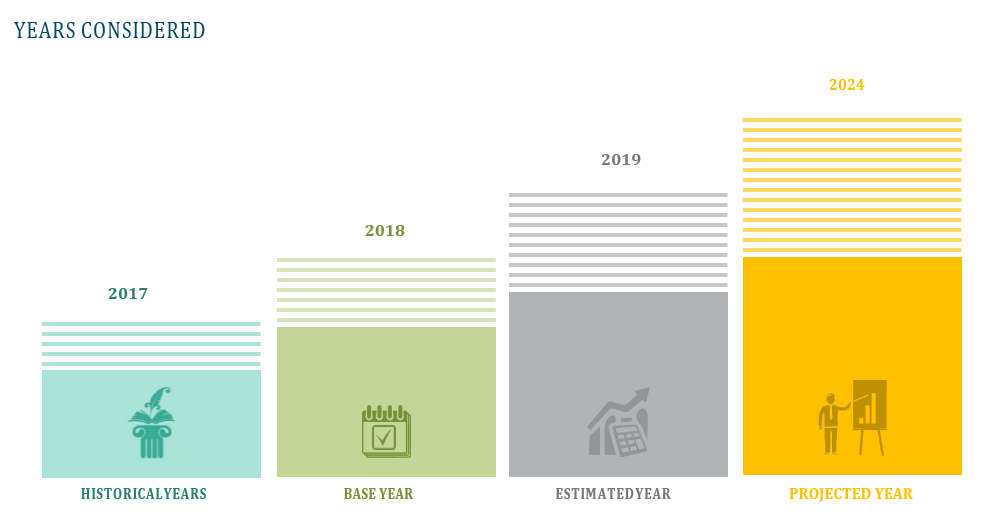


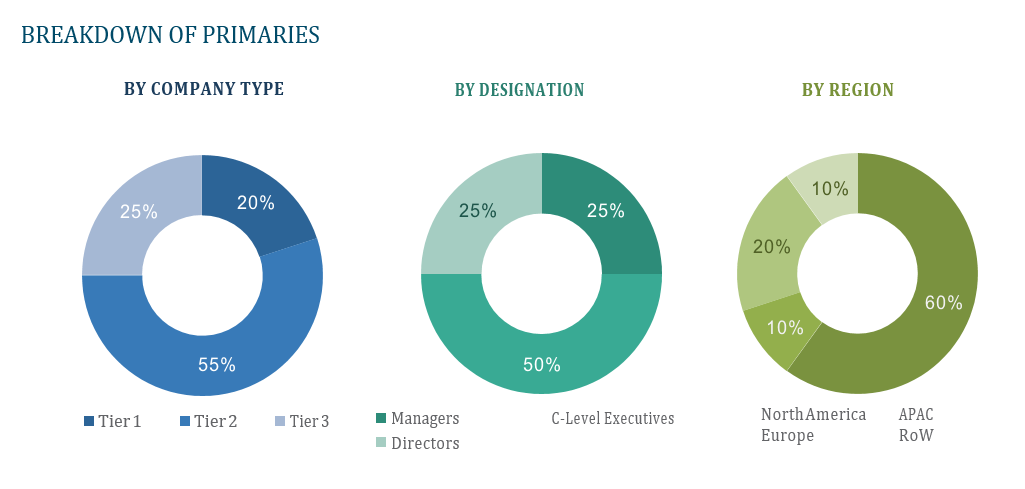
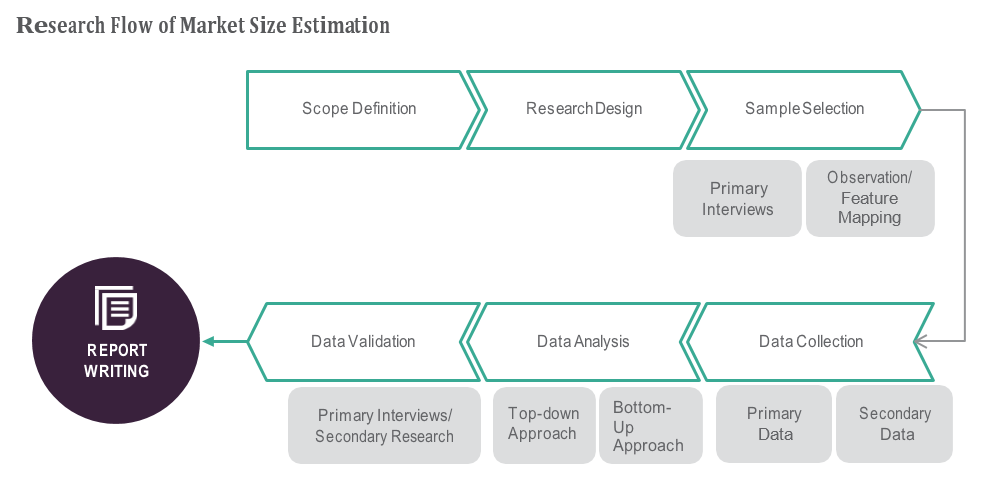

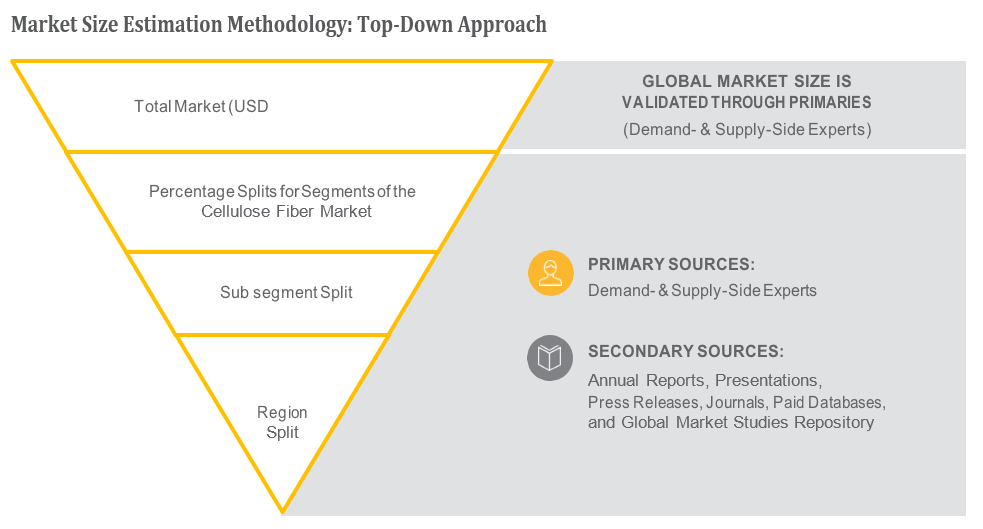
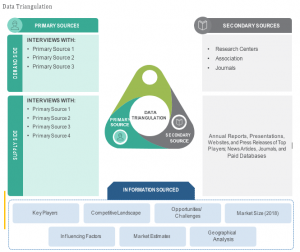
TABLE OF CONTENT
1 Global Unmanned Aerial Vehicle (UAV) Market
1.1 Study Objectives
1.2 Market Definition
1.3 Study Scope
1.3.1 Markets Covered
1.3.2 Geographic Scope
2 RESEARCH METHODOLOGY
2.1 Research Data
2.1.1 Secondary Data
2.1.1.1 Key Data From Secondary Sources
2.1.2 Primary Data
2.1.2.1 Key Data From Primary Sources
2.1.2.2 Key Industry Insights
2.1.2.3 Breakdown of Primaries
2.2 Market Size Estimation
2.2.1 Bottom-Up Approach
2.2.2 Top-Down Approach
2.3 Market Breakdown and Data Triangulation
2.4 Research Assumptions
3 Global Unmanned Aerial Vehicle (UAV) Market – Executive Summary
3.1 Market Revenue, Market Size and Key Trends by Company
3.2 Key Trends by type of Application
3.3 Key Trends segmented by Geography
4 Global Unmanned Aerial Vehicle (UAV) Market – Comparative Analysis
4.1 Product Benchmarking – Top 10 companies
4.2 Top 5 Financials Analysis
4.3 Market Value split by Top 10 companies
4.4 Patent Analysis – Top 10 companies
4.5 Pricing Analysis
5 Global Unmanned Aerial Vehicle (UAV) Market – Industry Market Entry Scenario
5.1 Regulatory Framework Overview
5.2 New Business and Ease of Doing business index
5.3 Case studies of successful ventures
5.4 Customer Analysis – Top 10 companies
6 Global Unmanned Aerial Vehicle (UAV) Market – Market Forces
6.1 Introduction
6.2 Market Dynamics
6.2.1 Drivers
6.2.2 Challenges
6.3 Porters Analysis of Market
6.3.1 Bargaining power of suppliers
6.3.2 Bargaining powers of customers
6.3.3 Threat of new entrants
6.3.4 Rivalry among existing players
6.3.5 Threat of substitutes
7 Global Unmanned Aerial Vehicle (UAV) Market – Strategic Analysis
7.1 Value Chain analysis
7.2 Product Life Cycle
7.3 Supplier and distributor analysis (Market share and product dealing strategies)
8 Global Unmanned Aerial Vehicle (UAV) Market – By UAV Size (Market Size – & million/billion)
8.1 Small UAV
8.2 Medium UAV
8.3 Large UAV
9 Global Unmanned Aerial Vehicle (UAV) Market – By System
9.1 UAV Airframes
9.2 UAV Payloads
9.3 UAV Data Links
9.4 UAV Ground Control Stations
9.5 UAV Launch and Recovery Systems
10 Global Unmanned Aerial Vehicle (UAV) Market – By Application
10.1 Military
10.2 Civil & Commercial
10.3 Homeland Security
10.4 Consumer
11 Global Unmanned Aerial Vehicle (UAV) Market – By Geography (Market Size – &million/billion)
11.1 Introduction
11.2 North America
11.2.1 US
11.2.2 Canada
11.2.3 Mexico
11.3 Europe
11.3.1 U.K
11.3.2 Germany
11.3.3 Italy
11.3.4 France
11.3.5 Spain
11.3.6 Rest of Europe
11.4 Asia-Pacific
11.4.1 China
11.4.2 Japan
11.4.3 India
11.4.4 South Korea
11.4.5 Rest of APAC
11.5 Rest of the World
11.5.1 South America
11.5.2 Middle East
11.5.3 Africa
12 Global Unmanned Aerial Vehicle (UAV) Market – Entropy
12.1 New product launches
12.2 M&A’s, collaborations, JVs and partnerships
13 Global Unmanned Aerial Vehicle (UAV) Market Company Profile (Key Players)
13.1 Market Share, Company Revenue, Products, M&A, Developments
13.2 DJI
13.3 Aerovironment Inc.
13.4 BAE Systems
13.5 Israel Aerospace Industries Ltd
13.6 Thales SA
13.7 Northrop Grumman Corporation
13.8 Airbus SE
13.9 Parrot Drones SA
13.10 Elbit Systems Ltd
13.11 Microdrones GmbH
13.12 Company 11 & more
14 Global Unmanned Aerial Vehicle (UAV) Market – Appendix
14.1 Sources
14.2 Abbreviations













